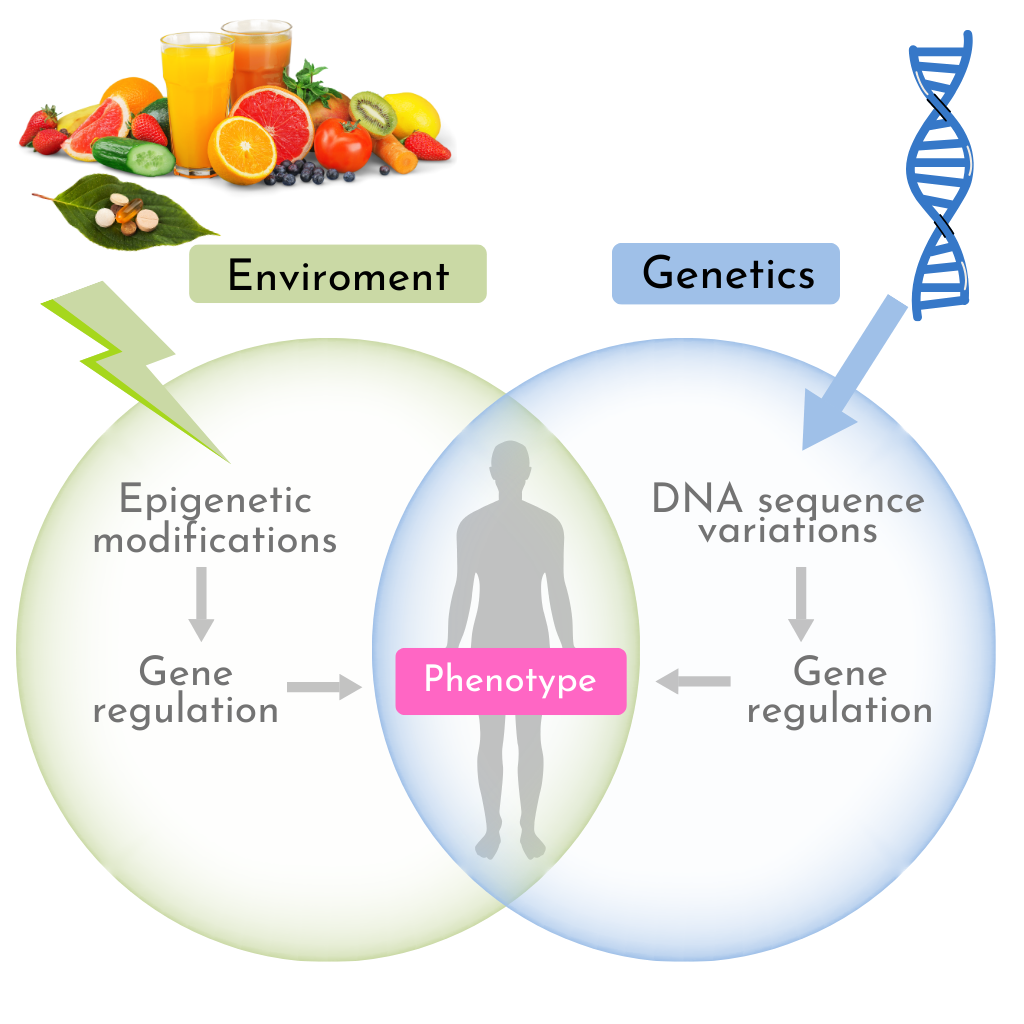The Interplay of Genes, SNPs, Epigenetics, and Body Chemistry
Why it is important to look at your genes
Your genes play a crucial role in defining your unique traits, such as eye color, skin tone, hair color, and gender. They are also vital in determining your health and vitality in the context of environmental factors. Once thought to be rare, genetic variations are present in everyone’s DNA. These variations can affect your ability to produce and utilize essential nutrients critical for processes like digestion, detoxification, gluten tolerance, blood sugar regulation, mitochondrial function, and the management of free radicals and premature aging. A gene is a specific sequence of nucleotides in your DNA that provides instructions for creating proteins, including enzymes, cell membrane receptors, and transport proteins. These proteins are essential for the metabolism of nutrients, hormones, and neurotransmitters. Additionally, genes regulate immune responses and other critical bodily functions.
Do you know that genetic variations, present in everyone, can significantly impact your health by affecting nutrient metabolism, detoxification, and even your body’s tolerance to gluten?
Understanding Your Unique Traits
Everyone has genetic variations known as Single Nucleotide Polymorphisms (SNPs), which can impact metabolic pathways based on how these variants are distributed across an individual’s genome. The good news is that understanding your specific SNPs can provide valuable insights into your health and emotional well-being. If you struggle with weight loss, insomnia, or mood swings, SNPs might be the underlying cause. They can also contribute to anxiety, depression, irritability, workaholism, obsessiveness, attention difficulties, and trouble winding down. On the positive side, SNPs can be linked to strengths like boundless energy, good spirits, enthusiasm, dedication, determination, and laser-sharp focus. Additionally, genes without SNPs can sometimes cause problems due to epigenetic factors, which influence how genes are expressed.
Epigenetics explains how our environment can turn genes on or off, which affects our health.
How Your Environment Shapes Gene Expression
Epigenetic Factors Include:
- Environmental Toxins: Pollution and chemicals like BPA
- Heavy Metals: Exposure to lead, mercury, and aluminum
- Stress: Both mental and physical stress
- Inflammation and Infections: Issues like mold, yeast, and fungus
- Excessive Exercise
- Aging
- Diet: Eating processed foods and high sugar
- Alcohol
- Medications: As well as nutritional deficiencies or excesses
Empowering Yourself Through Genetic Awareness
Since we all experience some of the triggers listed above, our genetic tendencies can become problematic when combined with environmental factors. Therefore, controlling our environment is crucial for maintaining health and longevity. The good news is that understanding your genetic makeup allows you to work with your SNPs. By supporting weaker pathways through healthy diet and lifestyle choices, you can proactively prevent potential health issues.
Your genes interact with your environment every day, shaping your health and wellness. Understanding this interaction empowers you to make proactive choices for a healthier future.
More articles you may enjoy:
We do Genomic Testing through our clinic. See how easy it is with our Step-by-Step guide.
